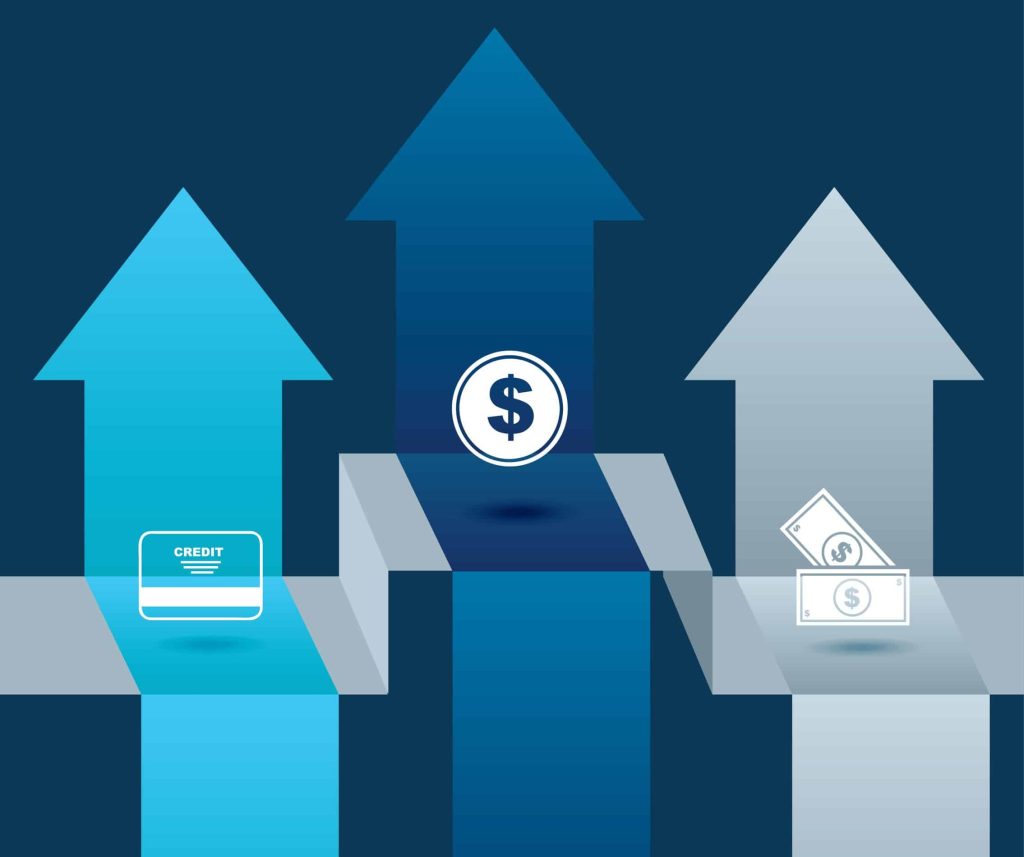Increase in deposits in money market funds leads to financial security

Anúncios

In a financial landscape full of uncertainties, the increase in deposits in money market funds is gaining attention as a sign of changing investor behavior.
More people are moving their money into these low-risk vehicles in search of stability, safety, and competitive returns.
Anúncios
Are you among those considering safer ways to grow your cash without exposing it to extreme volatility? Let’s explore why this trend is on the rise and how you can benefit from it.
Understanding Money Market Funds: A Safer Way to Grow Your Savings
Building a strong investment portfolio starts with understanding the tools that offer both security and steady returns. One of the most accessible and reliable options today is the money market fund.
These funds are gaining popularity among cautious investors seeking liquidity, stability, and modest but consistent earnings.
Anúncios
Let’s explore how they work, their advantages, and why they might be the right fit for your financial goals.
What Are Money Market Funds?
Money market funds are mutual funds that invest in short-term, high-quality debt instruments, such as Treasury bills, commercial paper, and certificates of deposit.
Because of their short maturities and low default risk, they aim to offer capital preservation with minimal volatility.
They are designed to maintain a stable value of $1 per share, providing predictability that is especially appealing during uncertain market conditions.
Why They Stand Out: Key Benefits
Money market funds provide a blend of features that make them attractive for short-term investing:
High Liquidity
These funds allow for quick and penalty-free access to your money, making them suitable for emergency reserves or short-term goals.
Unlike certificates of deposit or some high-yield savings accounts, there’s usually no waiting period to access your funds.
Low Risk with Competitive Yield
While they may not deliver the returns of stock investments, money market funds typically offer better interest rates than traditional savings accounts, with significantly lower risk.
That’s because they focus on government-backed or top-tier corporate debt, minimizing exposure to market volatility.
Professional Oversight
Experienced managers carefully select and monitor the fund’s investments. This reduces the effort required on your end and ensures the portfolio remains aligned with its goal of safety and liquidity.
How Money Market Funds Work
Investing in a money market fund is simple—and designed to be secure.
Pooled Investment Approach
When you invest, your money is combined with funds from other investors. The pooled capital is then deployed into a diversified portfolio of short-term debt, spreading out risk and enhancing returns.
Monthly Dividend Payments
The fund earns interest on its investments, which is paid out to shareholders—often on a monthly basis. This creates a steady income stream while preserving the original investment.
Different Types of Money Market Funds
Each money market fund is structured to meet specific financial needs. Understanding the types available can help you choose the right one:
Government Money Market Funds
These invest mainly in U.S. Treasury securities and government-backed debt. They are considered the safest option, especially during times of economic uncertainty.
Prime Money Market Funds
These may include corporate debt and commercial paper, offering higher yields but with slightly greater risk. They are often used by investors seeking a bit more income while still keeping risk relatively low.
Tax-Exempt Money Market Funds
Investing primarily in municipal bonds, these funds provide income free from federal taxes. They are ideal for investors in higher tax brackets who are looking to maximize after-tax returns.
In summary, understanding how money market funds work—and their unique benefits—can be a valuable step toward improving your financial stability.
Whether you’re saving for an emergency or looking for a safe place to park your cash, money market funds offer a compelling mix of security, liquidity, and low-maintenance growth.
In the next section, we’ll dive into the reasons behind the increase in deposits in money market funds, and what that means for today’s investors
Why Are We Seeing an Increase in Deposits in Money Market Funds?
The sharp increase in deposits in money market funds is more than a passing trend—it reflects a broader shift in investor behavior driven by economic forces, rising interest rates, and increased financial literacy.
Whether you’re a seasoned investor or just starting out, understanding these driving forces can help you make smarter decisions about where to put your money next.
Economic Stability Boosts Investor Confidence
As global markets show signs of recovery and stabilization, individuals and businesses alike feel more secure in moving their idle funds into short-term investment vehicles.
The predictable returns and low risk of money market funds become especially appealing during these times.
When people feel confident about economic conditions, they are more likely to seek options that combine safety with modest returns—leading to a clear increase in deposits in money market funds.
Higher Interest Rates Make Money Market Funds More Attractive
One of the most impactful factors is the recent surge in interest rates. When interest rates climb, the yield on money market funds tends to rise in parallel—outpacing traditional savings accounts.
Here’s why this shift matters:
- Funds provide a competitive alternative to traditional savings.
Higher interest payouts attract investors looking for more value on parked cash. - Investors seek ways to maximize earnings.
Rising rates make money market funds more appealing than low-yield checking or savings accounts. - Economic conditions lead to reallocation of funds.
Households and businesses shift idle money from banks to investment platforms offering higher returns.
These dynamics work together to create a favorable environment for money market growth.
The Role of Digital Banking and Accessibility
Modern fintech platforms and mobile apps have made investing in money market funds easier than ever. With just a few taps, users can transfer funds, view performance, and reinvest dividends.
This convenience eliminates the friction that once kept people from exploring investment alternatives, especially those traditionally unfamiliar with financial markets.
As a result, the increase in deposits in money market funds continues to accelerate among younger, tech-savvy demographics.
Financial Literacy is on the Rise
Another major driver of this trend is the growing understanding of investment diversification and risk management.
More people are recognizing that:
- Balanced portfolios need both high-return and stable-income assets.
- Short-term financial goals benefit from low-risk options like money market funds.
- Passive income through monthly dividends can complement regular earnings.
As educational resources become more accessible online, everyday investors are becoming more informed—and more inclined to shift cash toward financially sound vehicles like money market funds.
In summary, the ongoing increase in deposits in money market funds is being fueled by a combination of economic optimism, rising rates, user-friendly financial technology, and stronger investor awareness.
As these trends converge, money market funds are emerging as one of the most trusted options for low-risk capital growth.
Curious to know how fund managers are leveraging these trends to lock in better yields? Check out this interview with Murthy Nagarajan.
And if you’re still comparing options, this guide by Bankrate breaks down the pros and cons of money market accounts in detail to help you choose the best fit for your goals.
How Money Market Funds Work: Inside the Engine of Low-Risk Investing

Understanding how money market funds function is key to making informed, low-risk investment choices.
These funds have become a preferred solution for those seeking stability—and the recent increase in deposits in money market funds highlights just how trusted they’ve become in today’s economic landscape.
Let’s take a closer look at how these funds are structured, how they generate returns, and why they continue to attract conservative and strategic investors alike.
The Investment Structure Behind Money Market Funds
Money market funds operate by pooling cash from multiple investors, creating a large capital base that fund managers allocate across short-term debt instruments.
These investments are chosen for their high credit quality and short maturities, which help maintain a stable share value.
Common instruments include:
- Treasury bills
- Commercial paper
- Certificates of deposit (CDs)
- Repurchase agreements
The ultimate goal is to preserve capital and maintain a stable net asset value (NAV)—typically $1 per share—making these funds a safe haven for short-term money management.
Consistent Income Through Dividends
Money market funds generate income through interest earned on their debt holdings, which is then distributed to shareholders as dividends, often on a monthly basis.
Key features:
- Stable share value offers peace of mind for conservative investors.
- Monthly dividend payouts create a steady income stream.
- Professional oversight ensures that investments are well-managed and risk is minimized.
This structure provides a powerful combination of low risk and consistent returns, a core reason behind the continued increase in deposits in money market funds.
Liquidity: Fast Access When You Need It
One of the biggest advantages of money market funds is high liquidity. Unlike fixed-term deposits or certificates, these funds allow investors to withdraw money quickly and without penalties.
That makes them ideal for:
- Emergency funds
- Short-term savings goals
- Temporary parking of large cash amounts
The ability to access your money quickly—while still earning interest—makes these funds both flexible and efficient.
Types of Money Market Funds and Their Applications
Understanding the different types of money market funds can help you choose the one that best aligns with your financial goals.
Government Money Market Funds
These focus on U.S. Treasury and agency-backed securities, offering the highest level of safety.
- Best for risk-averse investors
- Lower yield but strong principal protection
Prime Money Market Funds
These include corporate debt and bank instruments, offering slightly higher returns with a bit more risk.
- Suitable for those seeking more income with moderate risk
- More sensitive to market credit conditions
Tax-Exempt Money Market Funds
Also called municipal money market funds, they invest in state and local government debt, providing federal tax-free income.
- Great for investors in high tax brackets
- Ideal for optimizing after-tax returns
In summary, money market funds work by combining professional management, short-term debt instruments, and consistent income payouts—while maintaining easy access to your money.
This combination of safety, liquidity, and stability is the foundation of their rising popularity, clearly seen in the increase in deposits in money market funds over recent years.
Benefits of Investing in Money Market Funds: Security, Liquidity, and Reliable Growth

In a financial landscape where volatility is often the norm, many investors are looking for ways to protect their money without sacrificing growth.
That’s why we’re seeing a consistent increase in deposits in money market funds—these funds offer a unique combination of safety, accessibility, and steady income.
Whether you’re building an emergency fund or seeking a secure place to hold cash temporarily, the advantages of money market funds are both practical and compelling.
Safety and Stability for Conservative Investors
One of the most attractive features of money market funds is their emphasis on capital preservation. These funds invest primarily in short-term, low-risk instruments such as Treasury bills and certificates of deposit.
This strategy significantly reduces the risk of losing principal—making them a top choice for conservative investors and anyone who values financial stability.
By avoiding long-term or high-volatility assets, money market funds offer a level of predictability rarely found in other investment vehicles.
The steady performance and stable net asset value help explain the steady increase in deposits in money market funds, especially during times of economic uncertainty.
Unmatched Liquidity and Fast Access to Cash
Money market funds are also popular because they offer easy access to your money. Unlike other accounts that may impose restrictions or early withdrawal fees, these funds are designed to provide liquidity when you need it most.
Some of the key advantages include:
- Easy access to funds with minimal delay.
- No penalties for withdrawals, unlike some other accounts.
- Great for managing unexpected expenses.
This high level of liquidity makes money market funds a smart choice for emergency savings or short-term goals.
If you’re looking for a flexible option that allows you to park cash safely while remaining ready for anything, this is a reliable solution.
Potential for Better Returns Than Traditional Savings
While they won’t generate the same returns as riskier investments like stocks, money market funds often outperform traditional savings accounts in terms of interest earned.
That makes them especially attractive when interest rates rise—providing you with a way to grow your money passively without taking on unnecessary risk.
In fact, this balance between return and security has become one of the leading reasons for the increase in deposits in money market funds across a broad range of investor profiles.
Professional Management Without the Complexity
Another major benefit is the hands-off approach. Money market funds are managed by financial professionals who monitor market conditions and select appropriate assets to meet the fund’s goals.
This allows you to invest with confidence, knowing that your money is being carefully managed—without the stress of day-to-day decision-making.
Even if you’re new to investing, you can enjoy the benefits of diversification, expertise, and risk management, all through a single, professionally overseen fund.
Accessible Entry Points for All Investors
Many money market funds come with low or even no minimum investment requirements, making them accessible to a wide audience.
Whether you’re just starting your financial journey or looking to diversify your portfolio, these funds provide a simple entry point into the world of investing.
This accessibility has helped drive the continued increase in deposits in money market funds, as more individuals recognize their potential not just for safety, but also for steady, practical growth.
In short, money market funds combine security, liquidity, professional management, and modest growth potential—all with easy access and low barriers to entry.
It’s no surprise they’ve become a go-to option for smart, low-risk investing. If you’re seeking a way to grow your money without taking on significant risk, money market funds may be exactly what you’re looking for.
Market Trends: What’s Driving the Growth of Money Market Funds?
The recent increase in deposits in money market funds isn’t happening by chance—it’s the result of several important market forces converging.
From macroeconomic changes to shifts in investor behavior, these trends are shaping the financial landscape and pushing more individuals and institutions to consider money market funds as a secure, flexible, and smart investment vehicle.
Understanding these trends is essential not only for existing investors but also for those looking to enter the market with confidence.
Low-Interest Rate Environment and the Search for Yield
In recent years, central banks across the globe have maintained historically low interest rates to stimulate economic activity.
But while this environment benefits borrowers, it’s often frustrating for savers—especially those relying on traditional savings accounts that offer minimal returns.
Money market funds, on the other hand, have emerged as a more rewarding alternative.
Even in low-rate conditions, these funds manage to deliver slightly higher yields by investing in short-term debt instruments with better returns than standard bank products.
As a result, many cautious savers have made the switch—contributing to the increase in deposits in money market funds.
Economic Uncertainty and the Flight to Safety
Periods of market volatility and uncertainty always lead investors to seek more stable and secure options. In times of inflation, recession fears, or geopolitical tension, money market funds provide a sense of financial refuge.
Investors are not only looking to grow their money but also to protect it from loss. With a strong track record of capital preservation and predictable returns, money market funds serve as a financial “safe zone.”
Key reasons investors are turning to these funds include:
- Increased demand from cautious investors.
- Inflation concerns lead to a search for stability.
- Frequent market fluctuations drive investors to safer assets.
This preference for low-risk instruments during turbulent periods has been a major contributor to the ongoing increase in deposits in money market funds.
Technology and Accessibility: A New Era for Investors
Another driver of growth is the evolution of financial technology.
The widespread adoption of online banking, mobile apps, and robo-advisors has made it easier than ever to access and manage investments—including money market funds.
This digital convenience has opened the door for younger and more tech-savvy investors who might have otherwise left their savings untouched in low-yield accounts.
Today, moving cash into a money market fund can be done in just a few clicks, with full visibility into your portfolio’s performance.
The ease of entry and real-time management has helped these funds grow faster than ever before, reinforcing their appeal to modern investors.
Changing Investor Behavior and Financial Awareness
The average investor today is far more financially informed and strategic than a decade ago.
With the rise of educational content, blogs, financial influencers, and access to market data, people are becoming more proactive in diversifying their portfolios.
Money market funds are now seen as essential components of a balanced strategy—helping investors manage liquidity, reduce exposure, and achieve short-term goals without sacrificing security.
As this awareness continues to grow, so does the willingness to use money market funds not just as a savings alternative, but as a core part of wealth management.
This trend is a powerful force behind the sustained increase in deposits in money market funds, especially among millennials and Gen Z entering the investing world.
In conclusion, market trends such as low interest rates, economic instability, digital access, and investor education are working together to fuel the expansion of money market funds.
By offering a compelling mix of safety, liquidity, and low entry barriers, these funds have become a go-to solution for navigating today’s complex financial environment.
Tips for Choosing the Right Money Market Fund: What to Know Before You Invest

With the increase in deposits in money market funds reflecting growing trust in these investments, choosing the right fund has become more important than ever.
While most money market funds share similar goals—preserving capital and providing liquidity—not all are created equal.
Selecting the fund that fits your financial goals, risk tolerance, and liquidity needs can make a significant difference in your overall strategy.
If you’re considering adding a money market fund to your portfolio, here’s how to evaluate your options effectively.
Evaluate the Fund’s Objectives
Before anything else, it’s important to understand what the fund is trying to achieve. Some money market funds aim for the highest possible yield, taking on slightly more risk to do so.
Others are designed for capital preservation, prioritizing safety over returns.
Ask yourself:
- Do you want to maximize yield in a low-risk environment?
- Or are you more concerned about protecting your principal with minimal fluctuations?
Knowing your own investment goals will help guide you toward the right fund profile.
Understand the Fund’s Holdings
What the fund invests in has a direct impact on its safety and returns. Government-focused funds typically invest in Treasury securities and repurchase agreements, offering very low risk.
Prime money market funds, meanwhile, may include corporate debt, which offers higher yield but more exposure to credit risk.
To make a well-informed decision, take time to review the fund’s prospectus and consider the following:
- Check the credit quality of the fund’s assets.
High-quality debt instruments reduce the risk of loss and increase the fund’s stability. - Consider the fund’s average maturity of investments.
Shorter maturities reduce sensitivity to interest rate fluctuations. - Evaluate historical performance against its peers.
Past performance isn’t a guarantee, but consistent returns can reveal fund efficiency.
This level of due diligence is especially important given the increase in deposits in money market funds, as more choices flood the market to meet demand.
Analyze Fees and Expense Ratios
Even small fees can erode your returns over time, particularly when dealing with modest yields. Look closely at the fund’s expense ratio, which represents the percentage of assets deducted annually for fund operations.
A lower expense ratio generally means:
- More of your money is being invested, not spent on fees.
- The fund is more efficient in managing costs.
Be cautious with funds that have high fees but underperform compared to peers with lower expenses.
Check for Liquidity and Accessibility
Since many investors use money market funds for short-term savings or emergency funds, it’s essential to choose one that allows fast, flexible access to your money.
Key factors to look for:
- Are there withdrawal restrictions or penalties?
- Does the fund allow same-day or next-day redemptions?
- Is the process of accessing funds simple and digital-friendly?
Flexibility is crucial, especially in unpredictable financial situations. As the increase in deposits in money market funds continues, funds that provide seamless access are becoming more desirable to modern investors.
Consider the Fund’s Reputation and Size
Larger, well-established funds tend to offer greater operational stability, experienced management teams, and better risk controls.
Look for funds backed by reputable financial institutions with strong credit ratings and transparent reporting.
You can also consult independent rating agencies to assess:
-
Fund safety and risk exposure
-
Past performance consistency
-
Investor reviews and trust scores
Opting for a fund with a proven track record can offer peace of mind—especially for first-time investors looking to enter the space as momentum builds behind the increase in deposits in money market funds.
In summary, choosing the right money market fund involves more than chasing yield.
By aligning the fund’s objectives, holdings, fees, liquidity, and reputation with your personal financial goals, you can select an option that balances safety and performance.
In a time when many are shifting toward low-risk investments, making a smart, informed choice will allow you to benefit from the ongoing increase in deposits in money market funds.
Why the Trend Toward Money Market Funds Makes Sense
The increase in deposits in money market funds isn’t a coincidence. It reflects a rational, calculated move by investors seeking stability, professional oversight, and better-than-average yields.
With market volatility and rising interest rates, these funds offer a valuable refuge for both new and seasoned investors.
By leveraging the insights from Financial Express and Bankrate, we can see that money market funds are positioned to remain a key part of the modern investment landscape.
If you’re looking to preserve capital while earning more than your bank offers, now might be the time to explore this safe and smart option.
FAQ – Frequently Asked Questions about Money Market Funds
What are money market funds?
Money market funds are mutual funds that invest in short-term, low-risk debt securities, such as Treasury bills and commercial paper.
What are the advantages of investing in money market funds?
They offer safety, liquidity, competitive returns, and professional management, making them an attractive option for conservative investors.
How can I access my money in a money market fund?
You can typically withdraw your funds quickly and easily without significant penalties, making them a flexible investment.
What should I look for when choosing a money market fund?
Evaluate factors like the fund’s objectives, holdings, expense ratio, and liquidity to find the fund that best suits your financial goals.
Liked the article?





